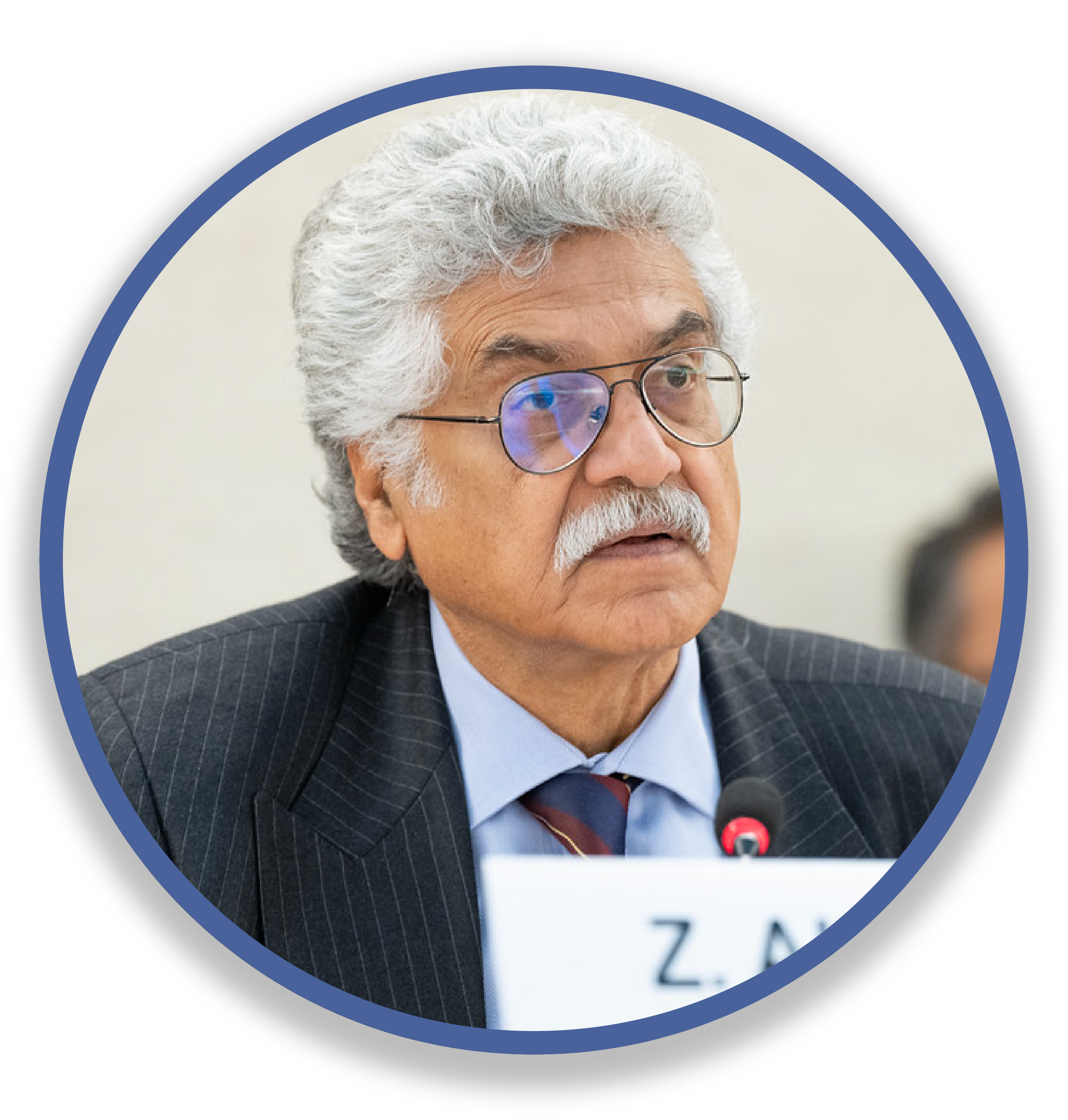Flash Point
The Pahalgam Crisis
Date: April 25, 2025
The Pahalgam terror incident on 22 April 2025 has once again exposed the fragility of peace between India and Pakistan. With Indian voices calling for decisive action against the perpetrators, Pakistani experts are wary of familiar precents: blame, escalation, and deflection. With talk of false flags and fears of Pulwama-style fallout, Jinnah Institute asked experts to assess the implications for security in South Asia.
Senator Sherry Rehman
President, Jinnah Institute

Terrorism in occupied Kashmir or anywhere is obviously condemnable. Yet New Delhi has not waited even five minutes after the tragedy to launch headlong into an escalation of hostilities in the name of ‘teaching Pakistan a lesson’. This is troubling policy infantilism for a nuclear-armed country with super power pretensions. Heinous as the terror attack may be, India’s hair-trigger response confirms that stridency on steroids is the new policy normal.
The IWT has been put in abeyance, borders have been closed shut, and diplomatic staff ordered to leave immediately by India. Much of this is symbolic, but there is also warmongering chatter and kinetic actions from New Delhi which are all stacked up to retaliation for an attack the Indian right wing insists has been masterminded from Pakistani soil.
Reflexive finger-pointing at Pakistan has long been New Delhi’s boilerplate response to abject security failures at home. India is seldom able to control, manage or negotiate a way out of its hundred ongoing mutinies, let alone handle a terrorist attack without setting the neighbourhood on fire.
Many in Pakistan see this as a false flag operation, with several precedents in the past. The revenge playbook belongs to another century, yet signals a high level of game planning, with little thought for the damage the rusty new iron curtain will cause its own population, particularly in an era of climate polycrisis for the region.
In any event, nuclear borders merit a recourse to restraint, as caution to our neighbours tumbling down this slippery slope: It is very easy to tumble into a bad place for India and Pakistan, but it is not at all easy to go back, once you unleash the dogs of war.
Amb. Zamir Akram
Former Ambassador

My strong suspicion is that the Pahalgam incident is a false flag operation timed for JD Vance’s visit to India. Such an operation was carried out in Chattisinghpura in 2000 when Clinton visited India. The obvious purpose is to put Pakistan under pressure. Even if this incident is not a false flag operation, India has already accused an alleged Pakistan based group linked to Lashkar-e-Taiba (LeT) without any evidence. It has also received strong support from the US, though Washington has not blamed Pakistan so far.
India will build up on this momentum, and it’s very possible that it will also conduct some kinetic action. This could vary from a surgical strike as in 2016 or an air attack as done in 2019. The target(s) could be places that India would claim are terrorist camps. I don’t think they would launch a ground offensive.
Pakistan should go on full alert status while conveying that it will respond to any Indian kinetic offensive in keeping with quid pro quo plus. At the same time, we should launch a diplomatic offensive bilaterally and in the UNSC.
Lt. Gen. Tariq Waseem Ghazi
Former Defence Secretary of Pakistan

There should be absolutely no doubt whatsoever that India will internationalise and place the blame for the events in Pahalgam squarely on Pakistan. It has been their well-honed formula, with more and more devious ways of doing so being added constantly to the pages of the standard playbook. There will be no internal recriminations or admission of Indian failures and excesses in trying to subdue Kashmiris from their rights of self-expression and aspirations for freedom. The genocide, ethnic cleansing, human rights abuses, mass dislocation of populations, rapes, and massacres unleashed by Modi and Amit Shah will not figure in any debate by India. And therein lies the sole cause – and, in my view, the justification – for the events of 22 April 2025, if indeed they are resistance-struggle related: a hapless people trying to assert their relevance once more through acts of desperation in their yearning for freedom. Given the brutality of the Indian policies and the suffocating incarceration of Muslims in occupied J&K, the only surprise is that these acts of defiance have not been more numerous or more frequent. This does raise the suspicion that this may be yet another false flag operation by the madmen at the helm of affairs in India.
As a result, Pakistan’s relations with India will undergo yet another test of nerves, but the low ebb to which they have fallen under Modi means that there is not much more to lose. We must anticipate and prepare to counter the coming Indian barrage of falsehoods through effective diplomacy and political unity. At the same time, we need to heighten our vigilance against Indian military adventurism, including revoking what was always a very bad idea: the ceasefire on the LoC. We also need to give up on an apologetic policy towards the Kashmiri freedom struggle and step up our support more meaningfully to our brethren there. India must be made to feel the pain to concede relief to the Kashmiris.
I remember a high-ranking Indian government official telling me in a Track 2 discussion in Bangkok many years ago: “If you play with fire, be ready to get burnt.” Given the active support provided by India to terrorists to spread mayhem in Balochistan and KPK, I hope that officials are on hand to render similar advice in New Delhi.
Maj. Gen. Isfandiyar Pataudi
Former Deputy Director-General, ISI

The attack in Pahalgam should be unequivocally classified as an act of terror. Pakistan must respond thoughtfully and with restraint to avoid escalating tensions. Given the possibility of India responding in kind, it is crucial for Pakistan to seize this moment to demonstrate cooperation and support, not retaliation. A calm and measured stance will make clear that this is not in Pakistan’s interest nor its intention to escalate matters further.
There is strategic value in being the first to set the tone. In the face of a likely international campaign by India, which will attempt to place the blame squarely on Pakistan, we must act swiftly and diplomatically. We should not fall into the trap of defensive rhetoric; rather, we should ensure that our international partners understand our position and express our condemnation of the attack. It is also important that there is political consensus within Pakistan to ensure a united response. This is an opportunity for Pakistan to take proactive, diplomatic steps with key global players such as China, the UK, and France, to foster support and underline our commitment to peace and stability.
Pakistan is on the path to economic stability, and it is firmly in our national interest not to be derailed by conflict. Pakistan’s response must remain mature and reasoned, and there should be no room for inflammatory rhetoric. We ourselves are victims of terrorism and should position ourselves as cooperative, international players seeking to address this crisis responsibly. The worst-case scenario, whether a conventional military strike or broader regional destabilization, must be prevented by a clear, rapid international outreach that underscores our condemnation of terrorism and our desire for de-escalation.
The situation demands calm, coordination, and a united political front. Pakistan cannot afford to hesitate in making its stance known. The international community may be more receptive to our concerns if we act decisively and with unity. The time for reaction is now. If we respond thoughtfully, we may turn this moment into an opportunity for diplomatic engagement, strengthening Pakistan’s position on the world stage.
